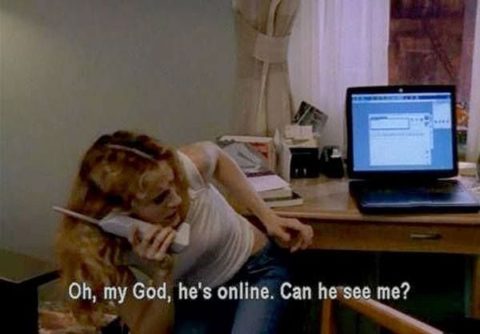From getting hacked to oversharing, how to avoid 7 common digital disasters

It certainly is a wonderful time to be alive with 21st-century technology. However, that doesn’t mean it brings its own host of problems. Digital mishaps, whether minor or major, can happen to the best of us. That’s why we’ve written some top tips on how to prevent the web from ruining your life.
Getting hacked
In case you’ve been hiding under a rock, hacking is alive and well. From Kylie Jenner to Mark Zuckerberg (really), it seems that no one is immune from their accounts being compromised. How can you prevent it? Simple. Change your passwords regularly. While you’re at it, make sure you don’t use the same password from platform to platform. (unbelievably, Zuckerberg used “dadada” across many) An easy trick to remembering a possibly insane amount of passwords is to create a base password—with numbers, letters and special characters, of course—that you alter with reference to the website you’re logging into. This reference can be anything from the first 3 letters of the site to its acronym (FB, anyone?).
If the above guidelines aren’t enough, Refinery29 recently created a great guide to un-hackable passwords.
Getting scammed
Shopping online can be amazing. Who doesn’t love never having to leave the house to buy almost anything you could ever need? That being said, it can also be a curse if you’re not careful. To avoid getting scammed while shopping online, always make sure the company and/or seller is reputable (reviews are there for a reason). If you want to be extra diligent, make sure the site starts with https://, which is just a techie way of saying the site is capable of encrypting and keeping your data safe and secure.
Photos being leaked
We’re not just talking about nudes here; any embarrassing photo you don’t want the whole world to see has the potential of being blasted on social media. The first rule to preventing them is to make sure they’re not taken. If a wild shot does ends up getting snapped though, make sure your intentions of not sharing them are heard. Now… what happens if it’s posted? Keep calm and untag, delete, or report the image depending on how cringe-worthy it really is.
Dealing with annoying or toxic “friends”
We all have those friends… the ones who post the most obscene comments on Facebook or inundate our feeds with stuff we could care less about. Instead of deleting them and possibly causing a rift, simply unfollow them. They’ll be none the wiser to the fact that your newsfeed is clear from any (and all) of their posts. If you end up finding yourself missing their drama, you can follow them back with just a click of a button or catch up on their profile.
Sending the wrong email
Perhaps you’ve had a bad day at the office and your attempt to get your point across was too harsh. Or maybe you just can’t stand submitting something with the typo you noticed right after you hit “send.” We’re not judging. If you’re using Gmail (and who isn’t nowadays?), you’re in luck. You can enable an “Undo Send” feature in your settings that will give you a small grace period to cancel or edit the message. Want to write an emotional response yet have a couple of hours to tone it down? Boomerang allows you to schedule emails to be sent after you’ve had enough time to cool down and rewrite the message.
Stalking your ex
We don’t need a study to tell us that stalking our ex on social media is bad. To keep your mental health in check, block them. You’ll no longer be able to keep tabs on them… but that’s the point. Cutting yourself off from them, cold-turkey style, will allow your heart to heal a bit quicker. You’ll also avoid seeing the almost inevitable relationship status update in the future.
Over-sharing
It’s tempting to let everyone know what you’re up to 24/7 on social media. However, we should all refrain from over-sharing. Privacy issues in the digital age are a real concern. Keeping on top of the ever-changing privacy settings is a must. Don’t share anything you wouldn’t be comfortable with a stranger knowing as you never know who is looking at your profiles. You don’t want any sensitive information getting into the wrong hands. Also, even if you’ve made your accounts private, it’s good practice to filter what you broadcast online so you can put your best self(ie) forward.







